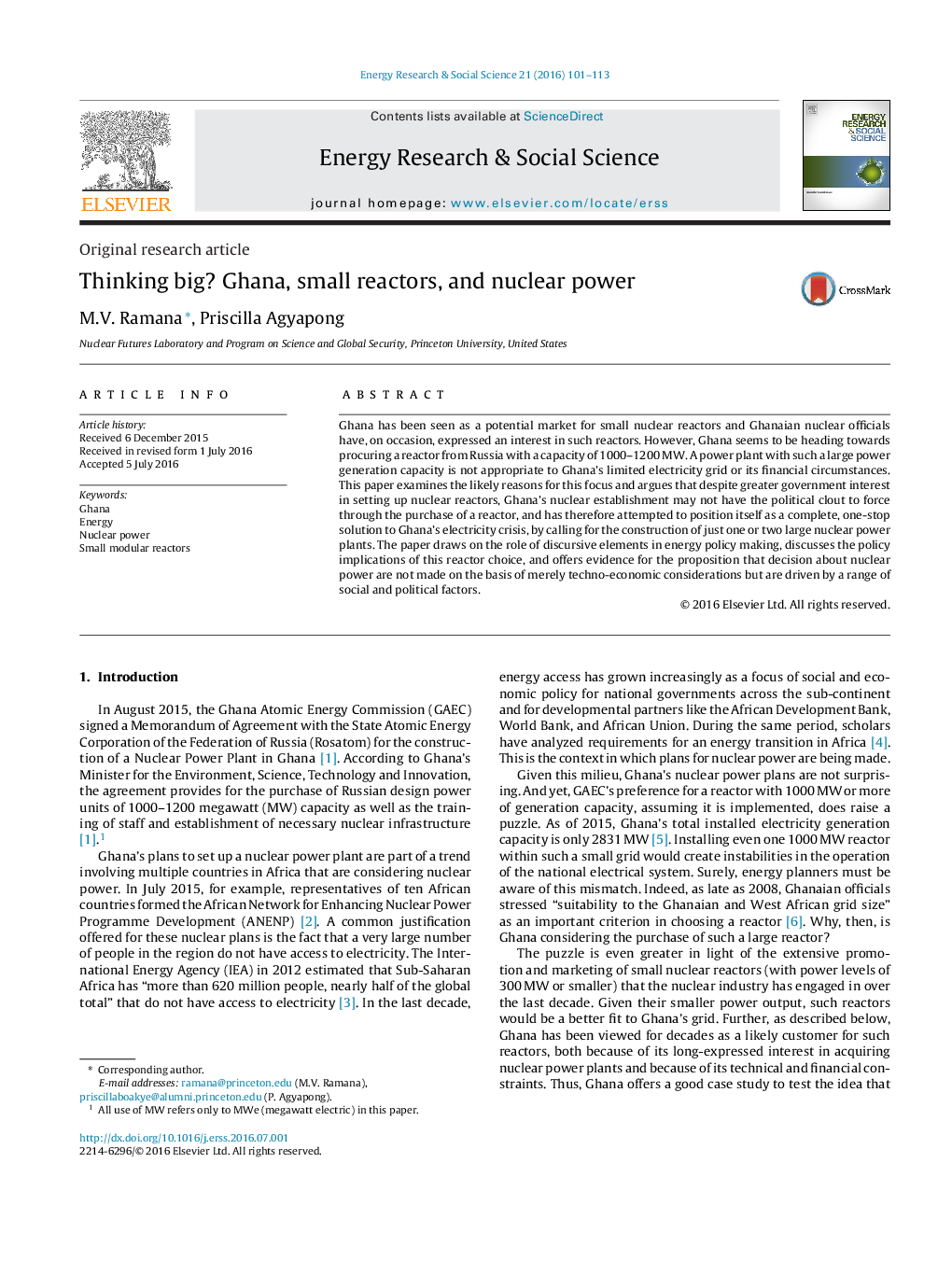| Article ID | Journal | Published Year | Pages | File Type |
|---|---|---|---|---|
| 108138 | Energy Research & Social Science | 2016 | 13 Pages |
Ghana has been seen as a potential market for small nuclear reactors and Ghanaian nuclear officials have, on occasion, expressed an interest in such reactors. However, Ghana seems to be heading towards procuring a reactor from Russia with a capacity of 1000–1200 MW. A power plant with such a large power generation capacity is not appropriate to Ghana’s limited electricity grid or its financial circumstances. This paper examines the likely reasons for this focus and argues that despite greater government interest in setting up nuclear reactors, Ghana’s nuclear establishment may not have the political clout to force through the purchase of a reactor, and has therefore attempted to position itself as a complete, one-stop solution to Ghana’s electricity crisis, by calling for the construction of just one or two large nuclear power plants. The paper draws on the role of discursive elements in energy policy making, discusses the policy implications of this reactor choice, and offers evidence for the proposition that decision about nuclear power are not made on the basis of merely techno-economic considerations but are driven by a range of social and political factors.
